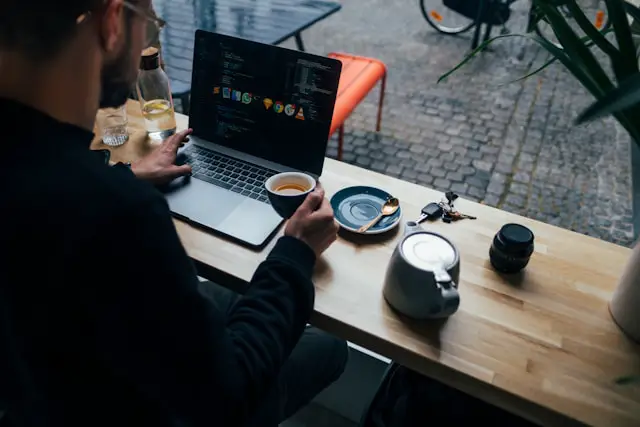
In today’s fast-paced world, multitasking has become a common habit.
From answering emails while attending meetings to scrolling through social media while working on projects, multitasking seems like an efficient way to get more done in less time.
But is it really beneficial, or could it be damaging our brains?
Studies suggest that while we may feel productive, multitasking can have negative effects on our cognitive abilities and overall mental health.
This article explores the science behind multitasking, its impact on the brain, and strategies for effective single tasking.
What is Multitasking?
Multitasking is when we try to do two or more tasks at the same time or switch between tasks quickly.
While it might seem like a smart way to get things done faster, true multitasking doesn’t really happen.
Our brains are built to focus on one thing at a time.
So, when we attempt to juggle multiple activities, we’re actually just rapidly switching our attention from one task to another.
Research shows that this constant back-and-forth can overload the brain, making us less efficient and more prone to mistakes.

Effects of Multitasking on the Brain
Multitasking often feels like a smart way to get more done, but research shows it can actually make you less productive.
Here’s a closer look at why that is:
The brain’s limitations
Our brains are not wired to handle multiple complex tasks at the same time.
When you attempt to juggle different activities, your brain has to switch back and forth between them.
This constant switching requires extra mental energy, which can lead to feelings of fatigue and confusion.
The strain of task-switching
Each time you switch tasks, different parts of your brain become active.
However, adjusting to each new task takes time and focus.
This can disrupt your concentration, making it difficult to fully engage with any one task.
Loss of productivity
According to research from The Journal of Experimental Psychology, multitasking can reduce your productivity by as much as 40%.
When you frequently switch tasks, it can feel like you’re working hard, but in reality, you’re wasting time and struggling to complete tasks efficiently.
Negative Effects of Multitasking
Reduced attention span
When we multitask, our attention is divided between different activities, which reduces our ability to focus on any single task.
According to a study from Stanford University, people who consider themselves heavy multitaskers have more difficulty filtering out irrelevant information and are less efficient at managing their working memory.
This means that multitasking can train our brains to be less attentive, making it harder to concentrate even when we are focusing on just one task.
Impaired memory
Multitasking not only affects our attention span but also impairs our memory.
The brain processes information differently when we split our focus, making it challenging to store and recall information later.
Research published in the Journal of Cognitive Neuroscience shows that multitasking disrupts the brain’s ability to encode information into memory, which explains why people who multitask often struggle to remember details or retrieve information accurately.
Increased stress
Trying to juggle multiple tasks simultaneously can be overwhelming, leading to increased stress levels.
A study from the University of California, Irvine found that individuals who frequently switch between tasks experience higher levels of stress hormones, such as cortisol, compared to those who focus on single tasks.
The constant pressure of managing multiple responsibilities can create a cycle of stress and anxiety, negatively affecting overall well-being.
Decreased productivity
Contrary to popular belief, multitasking does not enhance productivity; in fact, it often decreases it.
A report from the American Psychological Association highlights that the time lost in task-switching can add up, resulting in up to a 40% decrease in productivity.
The brain needs time to adjust when switching between tasks, and the frequent interruptions can lead to mistakes, longer completion times, and reduced quality of work.

Strategies for Effective Single-Tasking
Given the drawbacks of multitasking, it’s beneficial to adopt single-tasking strategies that promote focus and productivity.
Here are some effective techniques:
Prioritization techniques
Effective single-tasking starts with prioritization.
The Eisenhower Matrix, for instance, categorizes tasks based on their urgency and importance, helping you focus on high-priority tasks without getting sidetracked.
By breaking down your tasks into smaller, manageable steps and focusing on one task at a time, you can complete activities more efficiently and with greater attention to detail.
Time management strategies
Adopting time management techniques like the Pomodoro Technique can help improve focus.
The Pomodoro Technique involves working for a set period (usually 25 minutes), followed by a short break.
This method encourages deep focus and helps prevent burnout by balancing work and rest periods.
Studies show that structured time blocks can enhance concentration and reduce the temptation to multitask.
Creating a conducive environment
A productive workspace minimizes distractions and supports focused work.
Consider organizing your workspace to reduce clutter, turning off unnecessary notifications, and setting boundaries to minimize interruptions.
A study from Harvard Business Review highlights that having a dedicated workspace with minimal distractions significantly boosts productivity and concentration levels.
Simple adjustments, like using noise-canceling headphones or setting specific times for checking emails, can make a big difference in maintaining focus.

Final Thoughts
While multitasking may feel efficient, it often comes at the cost of our brain health and productivity.
The evidence overwhelmingly suggests that the brain is not built to handle multiple tasks simultaneously without consequences.
From impaired memory to increased stress, multitasking can take a toll on our cognitive and emotional well-being.
Embracing single-tasking strategies like prioritization, time management techniques, and creating a focused work environment can help improve productivity and reduce the negative impacts associated with multitasking.


